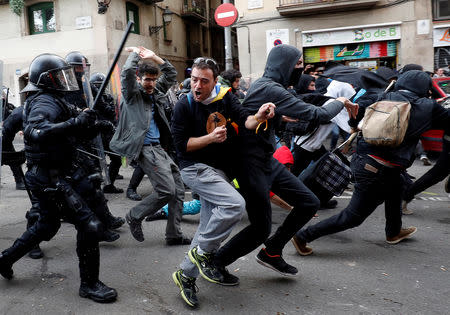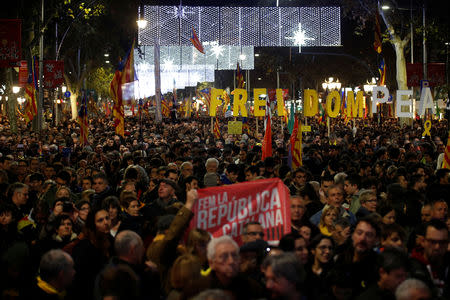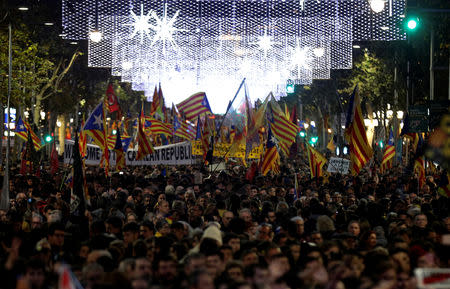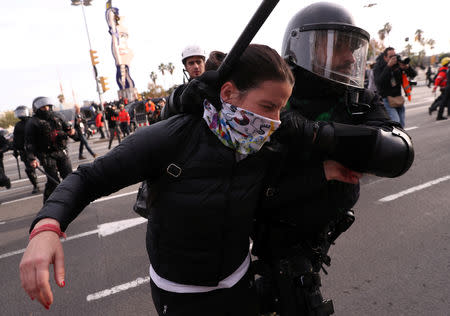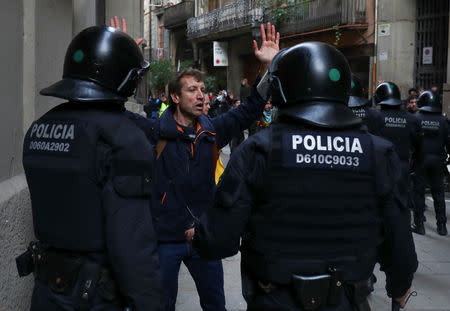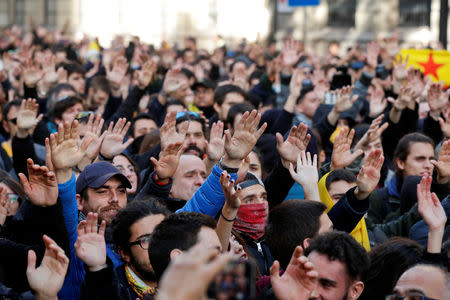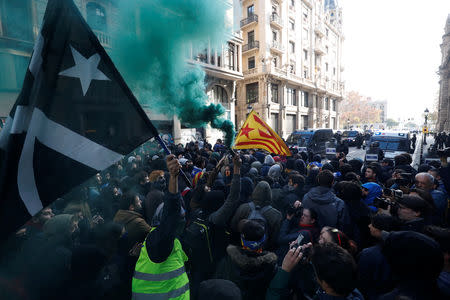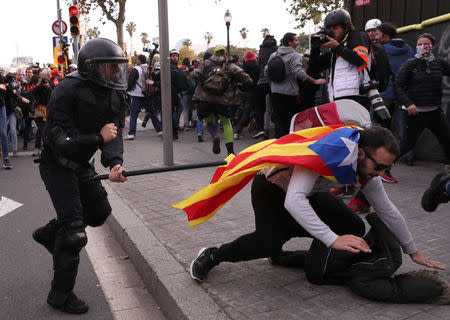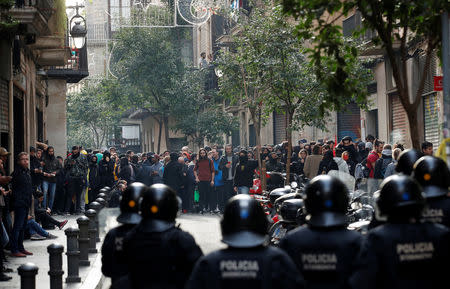Police arrest Catalan separatists seething at Spanish cabinet visit
By Sam Edwards
BARCELONA (Reuters) - Police dragged Catalan separatists off roads and arrested 13 during protests on Friday as the Spanish cabinet met in the regional capital of Barcelona in both a show of central power and an attempt at negotiation.
Secession supporters used tyres and rubbish to barricade highways from before dawn, and thronged the streets of Barcelona in their thousands, many flying the striped Estelada, the Catalan independence flag that bears a lone star.
Some set off flares and burned an image of King Felipe VI, while police scuffled with masked youths in chaotic scenes. Emergency services said 32 people suffered light injuries, most of them local police.
More peaceful rallies continued into the evening, with thousands marching along the Passeig de Gracia shopping street, normally a draw for tourists, chanting 'Freedom for political prisoners!' and 'Independence!'.
Many were wearing yellow, a colour that had become associated with jailed separatist leaders.
Protester Joan Toll lamented the lack of progress after an illegal referendum and self-declaration of independence in 2017.
"If you think about what has happened in the last year, we have achieved nothing. We are only being repressed more," Toll, a 44-year-old chemist, said during one of the morning rallies. "No one wants to see violence but people are getting tired."
The decision by Prime Minister Pedro Sanchez to convene his cabinet in Barcelona for the first time since the crisis began underlined Madrid's opposition to full independence for the prosperous northeastern region of 7.5 million people.
But it could also help him to secure the survival of his minority government with the aid of Catalonian pro-independence parties in return for more autonomy.
HUGE MINIMUM WAGE RISE
Sanchez, who has been trying to get voters on his side before a series of elections in the next two years, decreed a 22 percent rise in the minimum wage, the biggest in four decades.
His Socialist party controls only a quarter of seats in the Spanish parliament and will need all the support he can muster to pass next year's budget, to be presented in January.
On Thursday, Sanchez met Quim Torra, who heads Catalonia's pro-independence regional government. The pair agreed to a deeper dialogue despite what their governments described in a statement as their "notable differences".
Friday's protests were patrolled by Catalonia's local police force, unlike during last year's illegal referendum when national officers' use of batons and rubber bullets caused an outcry.
Meeting at a 14th century building on Barcelona's historic sea front, the cabinet approved a handful of symbolic measures for the region, including renaming an airport after Josep Tarradellas, Catalonia's first president following the end of Spain's dictatorship in the 1970s.
It also took steps to overturn a trial which led to the execution of former Catalan leader Lluis Companys by firing squad in 1940, and freed up over 100 million euros in investment for regional infrastructure - measures the Catalan government dismissed as being of little to no value.
Four jailed Catalan leaders ended a hunger strike on the eve of Sanchez's visit and their party vowed to back his broad plan for the national budget in 2019 and 2020.
Failure to approve the budget could topple the government, raising the possibility of a right-of-centre administration with stronger centralist preferences - a risk some Catalan politicians would prefer to avoid.
(Editing by Andrei Khalip and David Stamp)

